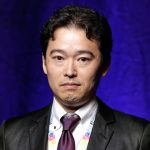Changing the world
Congratulations to all the prize winners at the 38th Congress of the ESCRS

Colin Kerr
Published: Thursday, December 3, 2020
 Dr Hisaharu Suzuki
Dr Hisaharu Suzuki Dr Emilio Torres-Netto
Dr Emilio Torres-Netto Dr Hélène Bailleul
Dr Hélène Bailleul Dr Jennifer Kim
Dr Jennifer KimCongratulations to all the prize winners at the 38th Congress of the ESCRS

Published: Thursday, December 3, 2020
 Dr Hisaharu Suzuki
Dr Hisaharu Suzuki Dr Emilio Torres-Netto
Dr Emilio Torres-Netto Dr Hélène Bailleul
Dr Hélène Bailleul Dr Jennifer Kim
Dr Jennifer Kim